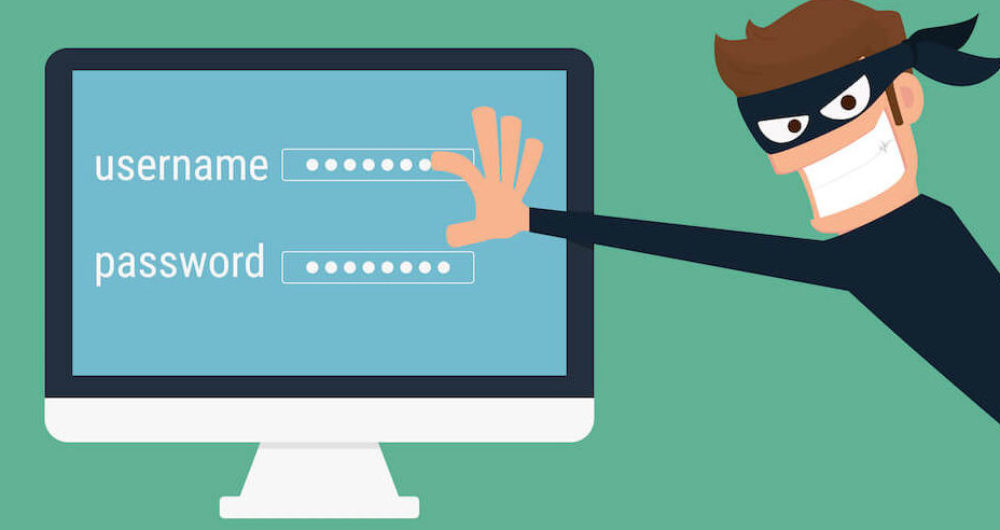 As most of us understand by now, social networking websites are designed for human interaction enabling users to meet up with other people; connect with them; and talk about their experiences, ideas and emotions. Social sites are developed with a similar foundation – every person forms a network of acquaintances bound by the factor of confidence. The consumer then generates content for friends gain access to. However, the potential for detrimental actions appears when a number of these connections breach your trust, and unfortunately, social networks are built on the foundation of confidence, numerous users turn into victims.
As most of us understand by now, social networking websites are designed for human interaction enabling users to meet up with other people; connect with them; and talk about their experiences, ideas and emotions. Social sites are developed with a similar foundation – every person forms a network of acquaintances bound by the factor of confidence. The consumer then generates content for friends gain access to. However, the potential for detrimental actions appears when a number of these connections breach your trust, and unfortunately, social networks are built on the foundation of confidence, numerous users turn into victims.
According to the authors and builders of Trend Micro™ Titanium™ Internet Security for Netbooks, today’s online communities are attractive to cyber-terrorists and crooks who employ a variety of ways to launch social networking ripoffs, ID theft and malicious software aimed towards social sites and their rising subscriptions. In truth, engagement currently surpasses 70 million in social networks and, if you don’t take safety measures, we’re not secure from falling victims — even people who are not users.
A number of things can go drastically wrong on a social site for example, your account might be compromised and used by somebody else; you might have added in a person you believed was honest yet he/she turns out not to be; or perhaps lack of use of privacy controls induced you to share information with individuals you never intended. Likewise of interest is that social networks contain an abundance of private information because people reveal their date of birth, household ties, photographs, e-mail address and home address, giving assailants ideas and data required to execute assaults such as identity theft or credit card fraud.
Researchers of TrendLabsâ„ say the cost of private information goes from $50 for each stolen bank account credentials to about $8 every million email addresses. Clean email handles from a social networking site pay extra. Bogus identity is increasing in social networks since it is easy and free to set up a user profile allowing crooks to pass themselves off as someone else and establish phony friendships that lead to float in invitations to adult websites, face-to-face gatherings, or a whole lot worse.
Currently, underground discussion boards advertise private information, so that your information can be mined and saved until a criminal pays the best price for this, after which these details is utilized to obtain birth certificates, passports or additional paperwork required to fake real-life identities.
E-mail addresses that originate from social networks could be also entered into data source that are afterwards useful for spam campaigns that are additionally classified to improve the effect of the plan – race, age, country along with other factors can be used as filters in that database so that its selling price is higher than just virtually any normal email address database.
Spear-phishing is a precise strategy that utilizes emails as sender addresses because using a identified contact from a “friends” list gives credibility towards the detrimental e-mail and boosts the chances of success for that offender to strike your friends list.
Here are some approaches to lessen pitfalls in social networks:
- Just release data that you are comfortable with.
- Just add individuals you trust to your contact list.
- Avoid clicking unpredicted links coming from people you do not know.
- Install genuine Internet security programs designed for netbooks if you use a netbook to surf the social websites.
- Never totally rely on any individual you don’t know that clearly.
There is yet another deceitful strategy that allows members to set up user-created applications for example calendars, animated graphics, or games on their user profile pages. This simply paves the way for the tricksters who are rolling out malware, Trojans as well as viruses that people unknowingly either download to their personal computer systems or post on their profile page. Specialists think this is the most common social networking scam.
Thanks for reading this article. If you're new here, why don't you subscribe for regular updates via RSS feed or via email. You can also subscribe by following @techsling on Twitter or becoming our fan on Facebook. Thanks for visiting!

16 Comments
Leave a Reply
Cancel reply
Leave a Reply
This site uses Akismet to reduce spam. Learn how your comment data is processed.




















































































































































































Jon
August 17, 2011 at 6:06 pm
I hate social networking.
I cannot say this enough. Giving out any information can lead to serious issues. Why does some faceless corporation need to know my favorite book, my political affiliation, or other information like that?
Social networks are evil.
joe
August 18, 2011 at 1:50 pm
whoe there jon, social networking has also made lots of advances not just in socializing but also in marketing and so on. It was never meant to do harm in the first place, there are just evil people that takes advantage but that does not mean the social sites are evil.. lol..
briant
August 20, 2011 at 7:04 am
Did you all know that the internet was created for war? the element of surprise is crucial to have and the CIA developed the internet which was then pirated and voila! we got in it too.. so it wouldn’t be a wonder if it could be use for evil.. 😀
Smith
August 20, 2011 at 7:17 am
I think information on internet is not secure. Especially information on social medium like facebook is completely insecure.Any one can tag your picture.Now Google + is comparatively secure than other social networks
Reeha
August 22, 2011 at 1:06 pm
I always feels insecure in previous social medias now after the entrance of Goggle+ i am feeling much secure. great post admin. i agree with your point of views.
kevin
August 23, 2011 at 2:08 pm
This is very alarming!! I hope all the crooks gets caught.. these hazards are freaking me out!
Paul Brown
August 23, 2011 at 3:32 pm
Information on the internet is not secure at all, so anything you don’t want others to know or are uncomfortable about sharing, simply don’t put it on the internet. A bit of common sense and some kind of protection software can go a long way to protecting your information when using the internet.
zain
August 24, 2011 at 3:41 am
Specialist should think how can they make this media more secure and reliable as it is needs to be done at every cost.
Omo
August 24, 2011 at 2:16 pm
Its true that online data has become increasingly vulnerable and can be accessed and breached from anywhere. The fact is alarming and one should not float complete infomation on the public platforms.
Thanks for spreading awareness…..
Jimmy
August 26, 2011 at 11:42 am
There are a lot of security risks with social networks and if you use them you have to always be thinking of the consequences of anything you do. Personally, I don’t use them, partly due to the security issues.
Herbert
August 26, 2011 at 12:11 pm
Be a frank, I hate social networking sites. Yes,I love to make a new contacts on internet but where any person can see you your personal details then the that place becomes a dangerous for us. There is no as such security for our details. The new launched Google + social networking site is an good example of social networking site. Here you can faith that no other person can use you name for other reasons.
biji
August 28, 2011 at 6:58 am
thank you for sharing this post. Many people has been hacked in their own social networking sites. you should be always keep your profile private.
Rob Benwell
August 31, 2011 at 8:43 am
The latest social networking sites are designed for human interaction enabling users to meet other people; keep in touch with them; and share their experiences, opinions and feelings. Most social sites are all built on a similar foundation, each user builds a network of contacts. Bound by trust, users then create content for friends to share. The potential for malicious activities arises when one or more of those contacts breach your trust, and then many other users become victims.
Rich Jenkins
October 17, 2011 at 4:02 pm
The new changes to Facebook has made social media security privacy vulnerable again. The Facebook cookies continue to function whilst you are logged out of Facebook, sending real time information to facebook about what you are looking at on the web and then automatically sharing that content.
Peter Rafferty
October 17, 2011 at 4:06 pm
I agree Rich. Facebook are being rather sneaky with the amount they can control and the amount of info that they are collecting off of our internet usage. This allows them to direct their ads at us a facebook users.
Fran
April 22, 2013 at 9:58 pm
I do not understand why people will put all that information on social network sites. I am sure they would not put all thier information a newspaper but they put it on social network sites that more people can see and use it to steal bank accounts.